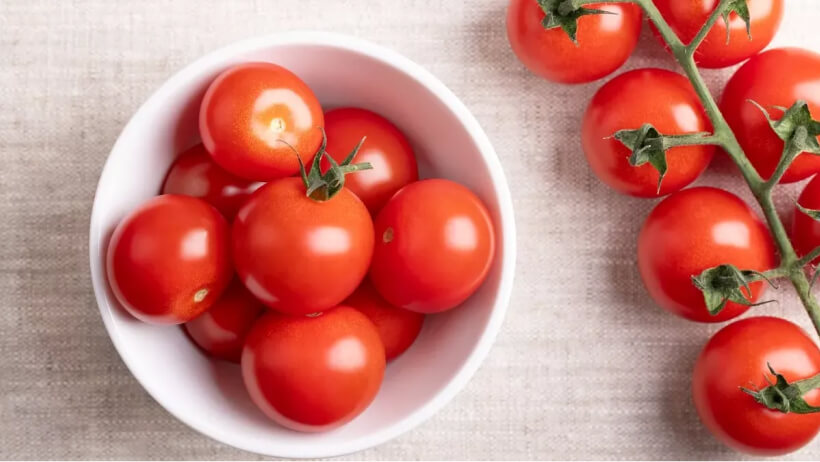Understanding the relationship between tomatoes and gout is crucial for anyone managing this painful form of arthritis. While tomatoes and gout have a complex connection, this comprehensive guide will help you make informed decisions about including tomatoes in your gout-friendly diet.

What Is the Connection Between Tomatoes and Gout?
The relationship between tomatoes and gout has been debated among researchers and gout sufferers alike. Unlike high-purine foods that clearly trigger gout attacks, tomatoes and gout present a more nuanced picture that varies from person to person.
Are Tomatoes Bad for Gout?
When examining tomatoes and gout, it’s important to understand that tomatoes are not traditionally classified as high-purine foods. However, some individuals with gout report experiencing flare-ups after consuming tomatoes, suggesting that the tomatoes and gout connection may be more complex than initially understood.
Scientific Research on Tomatoes and Gout
Key Studies on Tomatoes and Gout
Research investigating tomatoes and gout has produced mixed results:
- A 2015 study found tomatoes among the top four foods associated with gout flare-ups in over 2,000 participants
- The study showed a correlation between tomato consumption and elevated uric acid levels
- However, other research on tomatoes and gout has shown conflicting findings
Why Might Tomatoes Affect Gout?
The tomatoes and gout connection may be explained by several factors:
Glutamate Content: Tomatoes contain glutamate, an amino acid that may influence uric acid metabolism, potentially affecting the tomatoes and gout relationship.
Individual Sensitivity: Some people may be more sensitive to certain compounds in tomatoes, making the tomatoes and gout connection more pronounced for them.
Processing Factors: Processed tomato products may contain added sugars and preservatives that could worsen the tomatoes and gout interaction.
Tomatoes and Gout: The Nightshade Factor
Understanding tomatoes and gout also involves examining tomatoes as part of the nightshade family. Some individuals with inflammatory conditions, including gout, report that nightshade vegetables like tomatoes worsen their symptoms.
Nightshade Vegetables and Inflammation
The tomatoes and gout connection through nightshades involves:
- Solanine: A compound that may increase inflammation
- Individual sensitivity: Varying responses to nightshade consumption
- Anti-inflammatory compounds: Beneficial nutrients that may actually help with gout management
How to Test if Tomatoes Trigger Your Gout
Determining your personal tomatoes and gout relationship requires careful monitoring:
Elimination Diet for Tomatoes and Gout
- Remove all tomatoes and tomato-based products for 2-3 weeks
- Monitor gout symptoms carefully during this period
- Reintroduce tomatoes gradually while tracking any changes
- Document your tomatoes and gout response in a food journal
Tracking Your Tomatoes and Gout Experience
Keep detailed records of:
- Tomato consumption timing and quantity
- Gout symptom severity and timing
- Other dietary factors
- Medication usage
- Physical activity levels
- Sleep quality
Nutritional Benefits of Tomatoes for Gout Management
Despite concerns about tomatoes and gout, tomatoes offer several potential benefits:
Anti-Inflammatory Properties
Tomatoes contain compounds that may actually help with gout:
- Vitamin C: May help reduce uric acid levels
- Lycopene: Powerful antioxidant with anti-inflammatory properties
- Flavonoids: Natural compounds that may reduce inflammation
Low Purine Content
When considering tomatoes and gout, it’s important to note that fresh tomatoes are relatively low in purines compared to traditional gout triggers like organ meats and certain seafood.
Tomatoes and Gout: Healthy Alternatives
If you find that tomatoes and gout don’t mix well for you, consider these alternatives:
Vitamin C Rich Substitutes
- Bell peppers (especially red)
- Citrus fruits
- Broccoli
- Strawberries
- Kale
Lycopene Sources Beyond Tomatoes
- Watermelon
- Pink grapefruit
- Guava
- Red bell peppers
Recipe Modifications for Tomatoes and Gout
Replace tomatoes in recipes with:
- Roasted red peppers for umami flavor
- Beets for natural sweetness and color
- Zucchini for texture in sauces
- Carrots for mild sweetness
Managing Tomatoes and Gout: Professional Guidance
While understanding the tomatoes and gout connection is important, professional medical guidance remains essential:
When to Consult Healthcare Providers
Discuss tomatoes and gout with your healthcare team if you:
- Experience frequent gout flares
- Notice patterns between tomato consumption and symptoms
- Want to modify your gout management diet
- Need personalized nutrition guidance
Working with Specialists
Consider consulting:
- Rheumatologists for comprehensive gout management
- Registered dietitians for personalized nutrition advice regarding tomatoes and gout
- Your primary care physician for overall health monitoring
Tomatoes and Gout: Practical Tips
Smart Consumption Strategies
If you choose to include tomatoes in your gout management plan:
- Start with small quantities
- Choose fresh tomatoes over processed products
- Monitor your response carefully
- Maintain a food and symptom diary
Preparation Methods
Consider how you prepare tomatoes:
- Fresh tomatoes may be better tolerated than processed
- Avoid tomato products with added sugars
- Consider organic options to reduce preservative exposure
Tomatoes and Gout: The Bottom Line
The relationship between tomatoes and gout is highly individual. While some people with gout can enjoy tomatoes without issues, others may find that tomatoes and gout don’t mix well for their specific situation.
Key Takeaways for Tomatoes and Gout:
- Individual responses vary significantly
- Scientific research shows mixed results
- Elimination diets can help identify personal triggers
- Tomatoes offer potential anti-inflammatory benefits
- Professional guidance is recommended for gout management
Conclusion: Making Informed Decisions About Tomatoes and Gout
Understanding your personal tomatoes and gout relationship requires patience, careful monitoring, and potentially professional guidance. While tomatoes and gout may not be problematic for everyone, being aware of potential connections can help you make informed dietary choices.
Remember that managing the tomatoes and gout relationship is just one aspect of comprehensive gout management. Always work with healthcare professionals to develop a complete treatment plan that addresses your individual needs and circumstances.
Medical Disclaimer: This information about tomatoes and gout is for educational purposes only and should not replace professional medical advice. Always consult with qualified healthcare providers before making significant changes to your diet or gout management plan.






